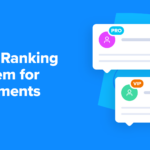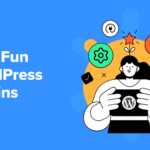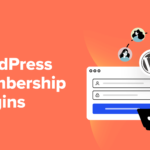Welcome to Press This, the WordPress community podcast from WMR. Each episode features guests from around the community and discussions of the largest issues facing WordPress developers. The following is a transcription of the original recording.
Powered by RedCircle
Doc Pop: You’re listening to Press This, a WordPress Community Podcast on WMR. Each week we spotlight members of the WordPress community. I’m your host, Doc Pop. I support the WordPress community through my role at WP Engine, and my contributions over on TorqueMag.Io where I get to do podcasts and draw cartoons and tutorial videos. Check that out.
You can subscribe to Press This on Red Circle, iTunes, Spotify, or you can download episodes directly at wmr.fm.
On this episode, we are joined by Ryan Singel, a former writer and editor at Wired, and now the founder of Contextly and Outpost. Ryan, I am super excited to have you on here. I’ve always enjoyed our conversations in the past. Let’s start off, why don’t you just tell me your WordPress origin story?
Ryan Singel: Thanks, Doc. So yeah, WordPress origin story when I was at Wired, I played around on my own to sort of set up my own site and that started with movable type, back in the day. And Wired was on some terrible internal CMS, and we lobbied really hard at Wired to move that over to WordPress.
And so I think about halfway through my tenure there we moved over. I spent about five, six years at Wired working with WordPress as our main CMS for publishing the entire site. So got to be very familiar with what needed to be done to make things look good and to push out content at scale.
We were often writing five, six blog posts in my section a day and having to figure out how to make that work with lots of different people touching it and so forth. And then got frustrated. So one of the things we would always do at Wired was link back to our original coverage of a story.
So if we’re writing about WikiLeaks or Chelsea Manning or the NSA, we’d written a bunch before. So we wanted to make sure when somebody read a story, they had an easy way to get back to it. And that was not a part of the WordPress Core. So we had to do a lot of editorial grunt work just searching Google and clicking through to get past the redirect and copying the URLs.
And I got frustrated with that and figured that should be something that was smarter and easier, and that led me to found Contextly and I left Wired to make recommendations for readers on WordPress smarter.
DP: It seems like a lot of influence came out of Wired, I mean, obviously journalistically, but we also have Jake Spurlock, who’s a Core Contributor and very active. And I met him visiting the Wired offices and talking about WordPress with him a long time ago.
So there always has kind of been this relationship with Wired. I don’t think they’re on WordPress anymore, although they might be, but it’s just kind of interesting to see their history and the WordPress timeline like that.
RS: Jake is great, and he came on I think a year or so after we moved over to WordPress. So the Condé Nast Wired story is a very convoluted one, but essentially getting Wired to run on WordPress, it was the first of the Condé Nast sites.
So Wired is owned by the same company that owns, like the New Yorker and Vanity Fair, et cetera. And we essentially had an internal writer rebellion because Wired was really, at the time, the only sort of daily production. And so we have this terrible CMS that was built for magazines. There was so much editorial work that had to go into and sort of just grunt work to get something published.
And this was in the early days of the blogging revolution, the TechCrunch’s of the world show up and you know, the need to sort of publish stories quickly and we were just dying. So we essentially had a rebellion that brought WordPress and we got Condé Nast to allow us to bust out of their system and move over to WordPress.
Eventually, it proved to be so useful that WordPress moved to like almost all of the other sites. And then Condé Nast has since done what many large companies do, which is built their own CMS, which is something I never recommend, but I’m not there anymore. I think they are largely off of WordPress now and onto something homegrown.
But it ran on WordPress for, I don’t know, a good 10 plus years and there was that moment when WordPress broke out of just being, the sort of run a small blog or power a small businesses site to being like, sort of a big tech tool and saw the rise of WordPress professional services and the New York Post and so forth were running on it.
It was fun to be there during that time when watching WordPress be pushed into service as a really professional publishing platform.
DP: Absolutely, and it was during your time there that you got the idea for what became Contextly. What does Contextly, which is a WordPress plugin that I use all the time, what does Contextly do for WordPress sites?
RS: Yeah. I would start with what the kind of the architecture is. So what we do is we help readers of your posts find other good things to read on your site. The core example, somebody gets to the bottom of your story. They just read your post and then you want to present them with relevant or interesting options for more things to read from your site.
So everything we do is either from your own site or from sister sites that you tell us to include in the recommendations. So architecturally, what we do differently than most Related Post Plugins is everything we do is computed in the cloud. So instead of using your WordPress database we sort of do all the computations outside of your database.
Have the intelligence live outside of WordPress and compute either related using multiple sets of algorithms, et cetera. Figure out which of your stories are popular and which of your stories are what we call evergreen. So essentially your oldies but goodies and automatically compute those for you and let you show those off.
And then also just cause I come outta the editorial world there are times when an author knows better than an algorithm what’s the best related recommendation for a given post. So we make it easy for you if you want to, to choose what related posts show up at the bottom or in the body of your story.
DP: The way I use it on my site, I spend a lot of time writing these articles and not all of them go viral, most don’t. Right? But you still do a lot of work on ’em and they’re still maybe relevant in the future. And so if a post does happen to get traffic and it’s a first time visitor and they enjoyed that post about weird jazz instruments or something, right?
They can see at the bottom the Contextly suggestions. And there’s different ways that I can show them things. I can either just let Contextly pick or I can kind of like add my YouTube channel, I think was one of the things you could do. You can kind of add things and kind of have it added in there.
I might be wrong on that, but there’s all this customization that I can do and hopefully people, if they like that one article, they’re just gonna continue on over to another article. And then my favorite feature is the Contextly email, it sounds like I’m doing an ad for you, but like the emails that I get every day, that’s like, you had this many visitors and here’s what they visited.
Obviously Google Analytics and things like that have that, but there’s just something really nice about that Contextly email that I get that shows me here’s the article that’s doing really well for some reason today. And I can kind of find out why if I dig down and then here’s how many people clicked from that article to another article.
So here’s another article that might be doing better than usual. That’s a cool feature.
RS: Yeah. When we first started off, we were doing cool stuff, but we needed to sort of prove to people how well it’s working, right? And I think credit for this goes to my co-founder, Ben. We decided to just start with reports rather than building a dashboard.
So almost every other service you sign up for it and they’re like, oh, you can check the dashboard. And it was like just coming from the writing world, there’s like five dashboards I have to check every day and we’re like, no, we’re just gonna send people a report.
Right. That tells ’em up the top, the sort of the basics, and then like, lets ’em dive more in. And just honestly, when we were first doing sales to big companies, the first question, well, not the first question, but we get them past the features and they’d be like, oh, so then you have a dashboard?
And we were like, no, we don’t have a dashboard, but we send you reports and then there’s kind of this “Sigh, oh no.” And then as soon as they start getting reports, nobody ever asked us for a dashboard again. Cause everybody already had enough dashboards and they like the daily reports that give them not just a sense of how Contextly it’s doing, but just a nice general overview of what’s happening on their site.
DP: Absolutely. And you know, I think that’s a great spot for us to take a quick pause and when we come back, we’re gonna talk with Ryan Singel of Contextly and Outpost about Contextly and what it can do for WordPress. So stay tuned.
DP: Welcome back to Press This, a WordPress Community podcast. I’m your host, Doc Pop, joined by Ryan Singel from Contextly, a plugin that helps keep visitors stuck to your site longer. Ryan, we talked about my favorite feature which is the emails that I get. Can you tell us about some of the advanced features that Contextly has?
Because I know that what I mentioned was pretty early on. I feel like y’all have done a lot of work since then that I might not be using as much.
RS: Yeah. So we have a couple other things we kind of built. So one we wanted for sites that have a wider range of content to make it an easy way for readers to just subscribe to a topic, right? So you are interested in Mac Minis and you’re reading Cult of Mac then if you’re reading a Mac Mini story, there’s an ability to follow that topic. And then we automate the emails that go out. And so this essentially works like a notification service. So you know, when there’s a new story about Mac Mini’s we’ll send the reader a nicely formatted email that has the new story.
And then we’ll include down below either related or new or popular stories to sort of do that. And so that creates kind of a distribution channel for your readers who care the most without you having to do any additional work. We think of it as a compliment to most sites that do a newsletter.
But it’s just as kind of an additional way for getting your best readers to know when you’ve got stuff, right. We also built a way you can do that for particular writers. So if you wanted to follow a writer and get notified when they do that.
And then we’re just about on the algorithm- ish side. So we built some tools where the recommendations work in layers. So we look at different things, right? So we look at the author, we look at the tags, we look at the categories, we look at the body of posts. We look at the age of a post, et cetera.
And we built a nice little graphic equalizer in our backend where you can literally sort of change how the related works. And then over on the side you can start to change what an algorithm would actually do for your site.
So you kind of pick a story, kick up the bass and see what happens, for the recommendations for a given post. And so we’re just about to add a new feature that essentially is a way to tune the related algorithm. So if you’ve just written a new post about Mac Minis there may be a post from five years ago about Mac Minis and that version is maybe not interesting anymore.
So what we’ll be doing is a way to sort of look at the older posts, and even if they are very related, if we think that post is sort of past its deadline and then it’s close to its end of life in terms of reader interest, it gets dropped down in the relevance rankings.
We don’t do that for all stories. We don’t want say anything old no longer is interesting, right? There are definitely posts people have that are evergreen that are still generating interest years after they’ve been published. And so what this does is figure out the difference between those things that are old and still relevant and things that are old and no longer interesting.
We’ll be rolling that out soon, and then we will add in there as another slider that sites can use to tune their own related recommendations.
DP: So if I wrote an article about Twitter launching a brand new API that will help developers everywhere, the algorithm will be like, that’s kind of out of date, that’s maybe not gonna age so well. So that’s cool.
RS: [laughter] No Twitter API has ever aged well.
DP: You were talking about algorithms here. Are y’all using any of the kind of modern AI to help with these decisions?
RS: So we’ve been doing a bunch of machine learning for a long time. So my co-founder Ben is a long time data scientist. There’s some fun stuff bubbling up that we’re gonna start playing with that I think you can do some cool stuff around AI to increase the quality of just kind of your usual recommendations. That I’m pretty excited about. I think they’ll be really cool.
I think there’s gonna be some other fun stuff around AI that will be interesting. One of the things I’ve been watching is using AI as a way to kind of create a sort of question and answer semantic search on your site. So essentially being able to ask on Doc Pop site, “Who’s the coolest glitch artist.” And being able to have that system, that AI, look just at your stuff, right? And create what it thinks is the best answer. The one problem with AI though, is that it often makes stuff up when it doesn’t know the answer. So that’s kind of an unsolved problem, which is AI likes to pretend it’s authoritative.
We all know that person at a party that just spouts off and you know way better than they do. So I’m interested in that, because I think there’s enough places that are smaller on the web that instead of AI trying to answer every question and replace Google, is can it make kind of an interesting search on smaller domains?
DP: Do y’all have a search feature? Like a search widget in WordPress?
RS: We don’t. So the thing is, like with our backend, we know enough about the content, we could deliver a search feature and maybe that’s something we should do. Just adding a smart, full text search. Honestly, no one’s ever asked us for it, so we’ve never done it. But I dunno, maybe we should.
DP: If we’re taking feature requests now, just when you were talking about AI, I think some people would hate this idea. I’m just gonna say it. What if when it’s showing my list of articles after my list of relevant other articles. What if Contextly tried rewriting some of those using AI. Like just like experimented with other titles and let me know like, “Hey, this is performing better if you change the name or anything like that.”
Is there anything possible with that?
RS: Yeah. So I think there’s some fun stuff around that. So there’s an AI writer I’ve been playing with called Lex. It’s built by the folks that made a newsletter subscription site called Every.to. You can sign up and play with it for free. I think there’s a little bit of a waiting list.
But it has some really nice tools around suggesting titles and you know, the sort of usual, write in a paragraph and then ask it to write the next paragraph or two for you. Robin Sloan is a fiction writer, has been playing with AI for a really long time and has used it.
And I think what a lot of writers have found is that it’s useful in order to find some maybe interesting new paths or sometimes it comes up with some clever new language. But really with AI, you’re gonna have to rewrite stuff pretty hardcore?
And I think the problem with AI is it will act authoritative even when it’s not. I dunno if you saw the stories CNET tried writing 60 something articles for kind of the SEO-ish style how-tos or explainers and they got fact checked and they were just wrong in many, many places.
Right. Getting the formula for how compound interest works wrong. But it acts like it knows. So that’s my one concern is I think what will continue to stand out with AI is we’re gonna see a lot of generated AI stuff all over the place, right?
There’s just too much incentive to spam Google. What’s gonna stand out is people who are authoritative. And so I’m interested in the ways that we can help make things authoritative and then having AI help that rather than doing too much with AI sort of helping you write more articles than you probably should.
DP: Yeah. They say AI is a 100 percent confident and 75 percent correct.
RS: [laughter] yeah.
DP: I think that’s a good spot for us to take another quick break, and when we come back, we’re gonna wrap up our conversation with Ryan Singel from Contextly, and I’m a hundred percent confident that you’re gonna enjoy the ending of this episode.
So stay tuned.
DP: Welcome back to Press This, a WordPress Community podcast. I’m your host, Doc Pop, joined by Ryan Singel, the founder of Contextly and Outpost. Ryan, I wanted to ask you, since we’re talking about stickiness on site and keeping folks who landed on your site there. Have you learned anything while you were doing this that kind of like you’ve applied to your writing? Are there any lessons you’ve learned from Contextly that help you keep people on your site longer?
RS: Yeah. We have found that it is not always true that short articles do better than long articles. There used to be a sense that you had to have a ton of volume, so you had a lot of posts but the posts would kind of be short.
And that definitely is a strategy that works if you keep it up. If you publish 10, 15 blog posts a day you’re gonna get some search traffic and people find you. But we find the things that people tend to click related and links on often tend to be longer stories. So even though it takes them longer to get to our recommendation modules they’re more likely to do that on posts that are thorough or interesting or new or a scoop or something like that. So that’s one of the things that we do in the reports is here’s the percentage of people that got so far into your story, and here’s the percentage of people that clicked on related links.
So what I took from that is we all like the sort of cheap content, right? Or the filler things. The 10 most interesting celebrities of 2022. Those stories don’t keep people around. They don’t tend to click to another story. What does keep people around is a deep, interesting story about something.
And then I guess the other thing we’ve learned and seen a lot about is that I don’t think people think enough about what the end of their story looks like.
And what I mean by that is when somebody reads a post on your site and they get to the bottom, they’ve come to sort of a moment of inattention or indecision. And they have to decide, am I gonna go share this article? Do I email it to somebody? Do I go back and do my actual work? Do I go to Facebook or TikTok?
And then oftentimes people then show the author’s bio at the end of the post. Which is the least interesting thing. It doesn’t give people a choice. Nobody really wants to read the author bio. When looking at your site and get to the bottom of the article, put yourself in the mindset of somebody who is trying to decide what to do next.
And so the closer you have good related recommendations, they perform better than any other form of recommendation. Get good related recommendations close to the end of the story. Make it clear that they’re related, right? And don’t say, “You Might Like.” That sounds like it’s gonna be some terrible recommendation system.
Just make it clear it’s related. And we think you should do multiple sets of recommendations. Then just move the author bio either to a link from the top or underneath all of that. If people want to comment, they know they just gotta scroll down.
So that would be my one piece of sort of most actionable advice for somebody, even if they’re not using us, which is get your recommendations as close to the end of the article as possible.
DP: I wanna give you one more shout out here for Outpost, which is also doing great stuff. Can you tell us real quickly, how would you describe Outpost?
RS: Yeah, Outpost is sort of power business tools for newsletter and subscription first sites using Ghost. So I can think of Ghost as, and WordPress will be mad about this ‘cause they’re trying to move into the space. But Ghost is sort of WordPress of the newsletter space. They’re open source.
So what we do is help those sites build their audience. So with tools like an easy to use tip button and a set of like autoresponders that are smart. So somebody signs up for your free site, will set up a drip system that let’s the site tell people what they’re about and sends them links to their previous best stuff and then sends them sets of different offers to sign up for a paid subscription.
So the goal there Outpost is just to help publishers who have moved into that newsletter, subscription sort of space convert more free readers, get more free readers, and sort of build their business without having to do a ton of work.
DP: And on that, Ryan, what is the best way for folks to follow what you’re doing these days?
RS: Yeah. So I used to say Twitter but I’ve largely moved off Twitter for the fediverse. So if they’re interested in me, find me on the fediverse, I’m [email protected] or you can check out Contextly. It’s still on Twitter and Outpost is also still on Twitter, or they can check us out at outpost.pub.
DP: Well, thanks for joining me, Ryan, and thanks to the folks who listened to this episode. I hope you had a great time and enjoyed our conversation. This has been Press This, a WordPress Community podcast on WMR.
You can follow my adventures with Torque magazine over on Twitter @thetorquemag or you can go to torquemag.io where we contribute tutorials and videos and interviews like this every day. So check out torquemag.io or follow us on Twitter. You can subscribe to Press This on Red Circle, iTunes, Spotify, or you can download it directly at wmr.fm each week. I’m your host Doctor Popular I support the WordPress community through my role at WP Engine. And I love to spotlight members of the community each and every week on Press This.











